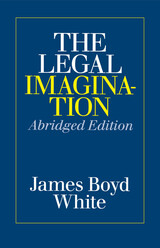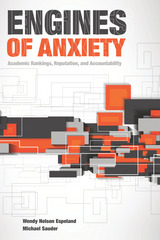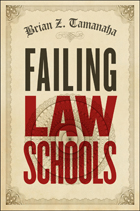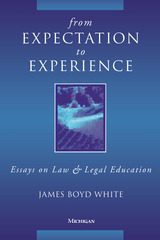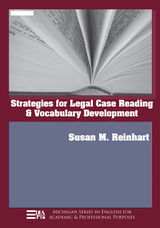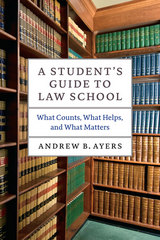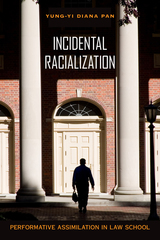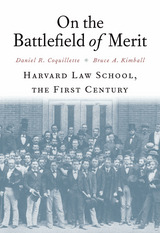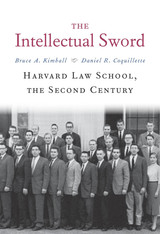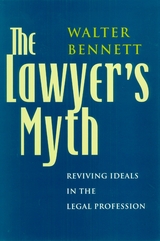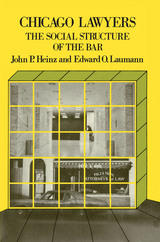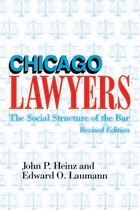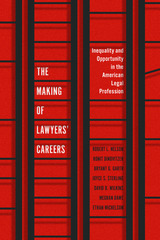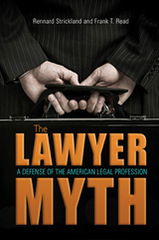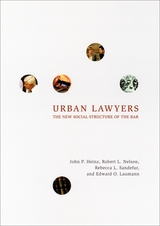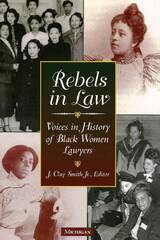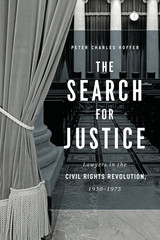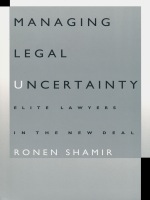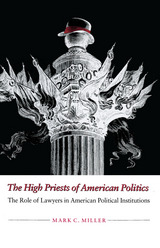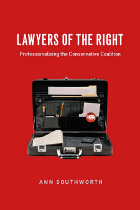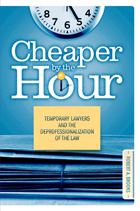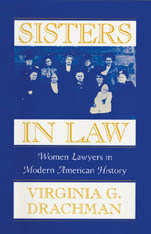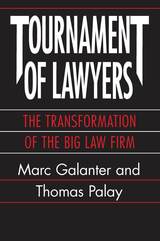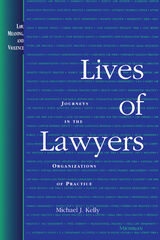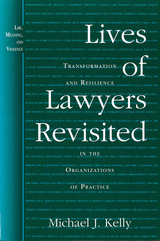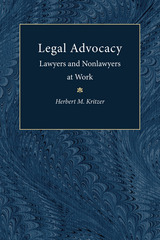The Lawyer Myth: A Defense of the American Legal Profession
Ohio University Press, 2008
Paper: 978-0-8040-1111-2 | Cloth: 978-0-8040-1110-5 | eISBN: 978-0-8040-4035-8
Library of Congress Classification KF298.S775 2008
Dewey Decimal Classification 340.02373
Paper: 978-0-8040-1111-2 | Cloth: 978-0-8040-1110-5 | eISBN: 978-0-8040-4035-8
Library of Congress Classification KF298.S775 2008
Dewey Decimal Classification 340.02373
ABOUT THIS BOOK | AUTHOR BIOGRAPHY | REVIEWS | TOC
ABOUT THIS BOOK
“When you mentioned to family or friends that you were considering becoming a lawyer, you probably faced skepticism, if not serious criticism… You are undoubtedly asking yourself if three or four years of a rigorous and costly legal education is really worth the candle. For you … we add these final comments. We hope that they will reassure you, as well as your friends and family, that it is possible, as Oliver Wendell Holmes Jr. proclaimed, ‘to live greatly in the law.’” — from The Lawyer Myth
Lawyers and the legal profession have become scapegoats for many of the problems of our age. In The Lawyer Myth: A Defense of the American Legal Profession, Rennard Strickland and Frank T. Read look behind current antilawyer media images to explore the historical role of lawyers as a balancing force in times of social, economic, and political change. One source of this disjunction of perception and reality, they find, is that American society has lost touch with the need for the lawyer’s skill and has come to blame unrelated social problems on the legal profession. This highly personal and impassioned book is their defense of lawyers and the rule of law in the United States.
The Lawyer Myth confronts the hypocrisy of critics from both the right and the left who attempt to exploit popular misperceptions about lawyers and judges to further their own social and political agendas. By revealing the facts and reasoning behind the decisions in such cases as the infamous McDonald’s coffee spill, the authors provide a clear explanation of the operation of the law while addressing misconceptions about the number of lawsuits, runaway jury verdicts, and legal “technicalities” that turn criminals out on the street.
Acknowledging that no system is perfect, the authors propose a slate of reforms for the bar, the judiciary, and law schools that will enable today’s lawyers—and tomorrow’s—to live up to the noble potential of their profession. Whether one thinks of lawyers as keepers of the springs of democracy, foot soldiers of the Constitution, architects and carpenters of commerce, umpires and field levelers, healers of the body politic, or simply bridge builders, The Lawyer Myth reminds us that lawyers are essential to American democracy.
Lawyers and the legal profession have become scapegoats for many of the problems of our age. In The Lawyer Myth: A Defense of the American Legal Profession, Rennard Strickland and Frank T. Read look behind current antilawyer media images to explore the historical role of lawyers as a balancing force in times of social, economic, and political change. One source of this disjunction of perception and reality, they find, is that American society has lost touch with the need for the lawyer’s skill and has come to blame unrelated social problems on the legal profession. This highly personal and impassioned book is their defense of lawyers and the rule of law in the United States.
The Lawyer Myth confronts the hypocrisy of critics from both the right and the left who attempt to exploit popular misperceptions about lawyers and judges to further their own social and political agendas. By revealing the facts and reasoning behind the decisions in such cases as the infamous McDonald’s coffee spill, the authors provide a clear explanation of the operation of the law while addressing misconceptions about the number of lawsuits, runaway jury verdicts, and legal “technicalities” that turn criminals out on the street.
Acknowledging that no system is perfect, the authors propose a slate of reforms for the bar, the judiciary, and law schools that will enable today’s lawyers—and tomorrow’s—to live up to the noble potential of their profession. Whether one thinks of lawyers as keepers of the springs of democracy, foot soldiers of the Constitution, architects and carpenters of commerce, umpires and field levelers, healers of the body politic, or simply bridge builders, The Lawyer Myth reminds us that lawyers are essential to American democracy.
See other books on: Defense | Ethics & Professional Responsibility | Lawyers | Legal Education | Practice of law
See other titles from Ohio University Press

